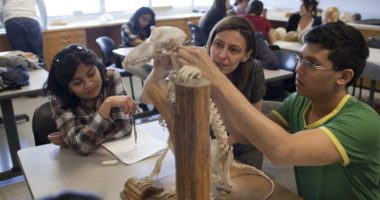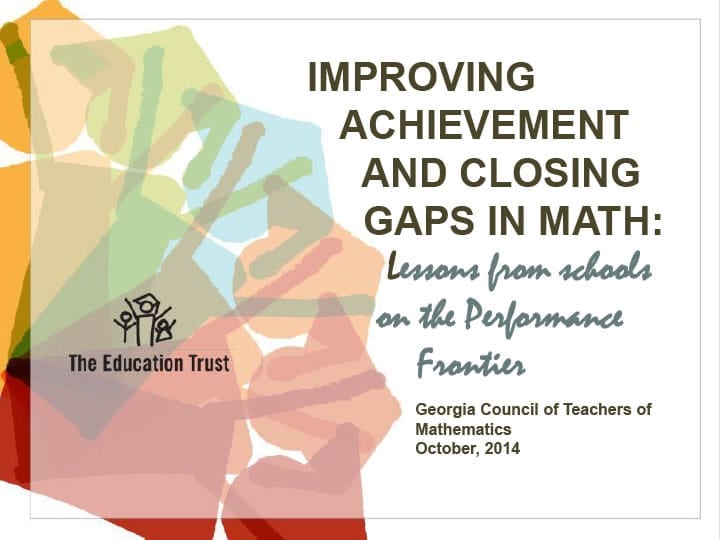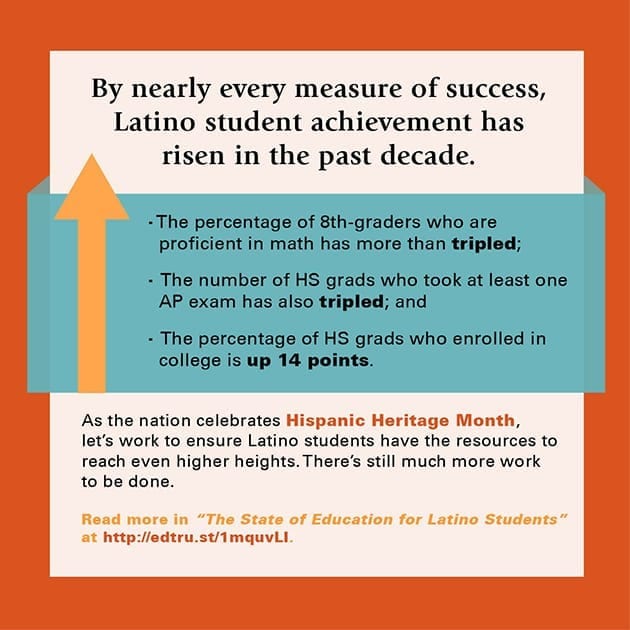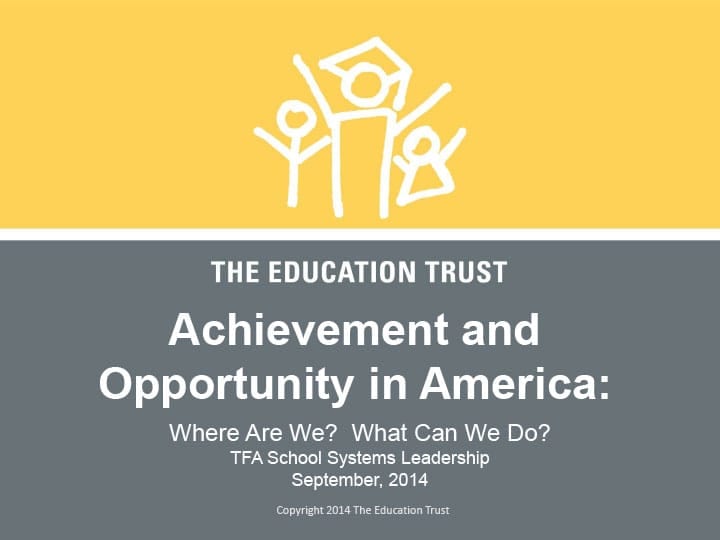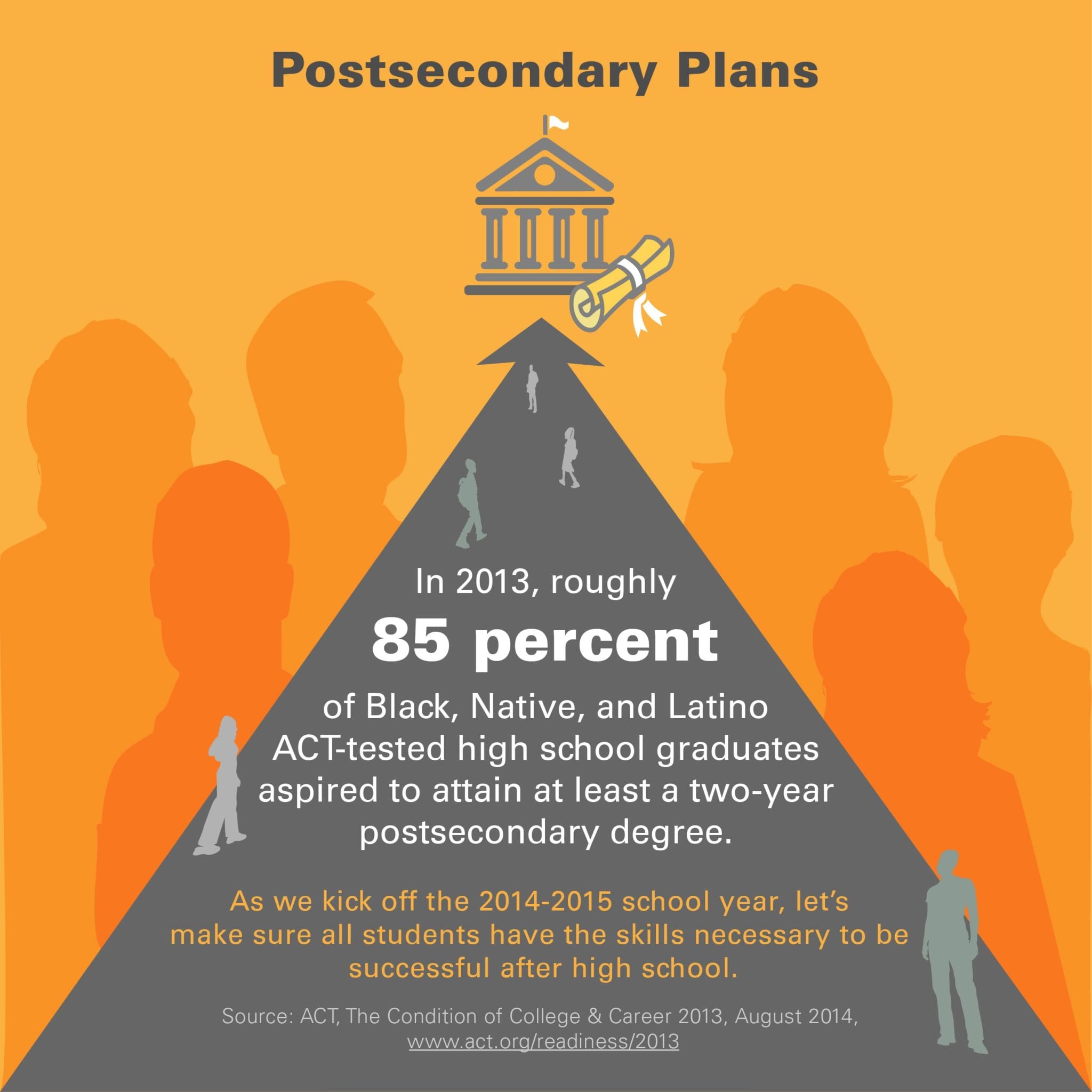Matching First Generation Students’ Ambitions With Their Preparation
Kids from the Bronx neighborhood where Julia grew up, in a one-bedroom apartment along with three siblings and her deaf mother, aren’t expected to make it off the block, much less onto a college campus. But like many prospective first-generation students, Julia’s college aspirations began early: with a promise to her grandparents that she would be the first in the family, and the first grandchild, to get a college degree.
First, though, she needed the academic preparation to get her there. “During high school,” Julia, now in college, told me, “they gave us easy classes because in my school not many people go to college. Maybe only 18 percent — and most are back home in a year. So we normally had training skills so after high school we could go become construction workers or plumbers or anything with physical labor. And, like, instead of taking chemistry or physics, we’d take pediatrics or human sexuality and that counted as a science class.”
Julia’s high school course-taking isn’t an anomaly. While many students leave high school unprepared for a postsecondary education, a recent ACT report suggests that, despite high college aspirations, first-generation students like Julia have it worse: Only 67 percent of them are placed in what the ACT considers a “core college prep curriculum.” That’s compared to 80 percent of those whose parents have a bachelor’s degree and 84 percent of those whose parents have a graduate degree.
And the hurdles for first-generation college students don’t stop there. When Julia stepped onto campus at Stony Brook University in New York, she realized her battle had just begun. She struggled to keep pace with the academic rigor her first semester, ultimately dropping all of her classes. Fortunately, her counselor intervened and convinced her to stay. And robust campus supports designed for first-generation students got her back on track.
Today, a junior and student mentor majoring in English, Julia says she was fortunate to end up at Stony Brook — that had she gone anywhere else, she might not have received the supports she needed to catch up.
Julia’s struggles aren’t unique. Too many students graduate high school unprepared for college. According to ACT, less than 10 percent of potential first-generation college students met all four college readiness benchmarks, compared to more than a quarter of students overall. Even worse, more than half of these students missed all 4 benchmarks. In fact, there is no single subject for which more than half met the college-readiness benchmark, and most first-generation students who missed the benchmarks did so by a considerable amount.
Our high schools owe it to ambitious, first-generation students to prepare them for real success in college through a challenging curriculum, high-quality teachers, and robust guidance. And in the meantime, we need more colleges like Julia’s, where all admitted students — especially first-generation students and those entering underprepared — are provided with the supports they need to attain not only a college ID, but a degree.






